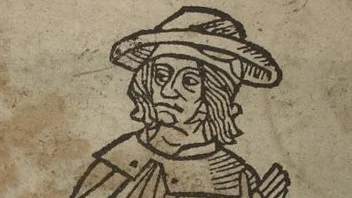
News
Quentin Cendre-Malinas a reçu Pierre Chépélov pour un entretien dans dans le cadre de l’émission Le Kiosque sur Transistor : la radio.
Le Bestiaire fantasque au CRR de Paris
Samedi 14 mars 2020 à 16h
Trois œuvres témoignant de la persécution nazie, par le biais de trois figures de survivants.
Un projet d’enregistrement
Dans le cadre de ses Prix de Printemps 2019, la SACEM a attribué à Pierre Chépélov le Prix de la Fondation Francis et Mica Salabert.
Agenda
FR. July 1, 2022, 8pm | Paris, Athénée
Je rêve de rêver
Ensemble Les Apaches • Julien Masmondet
sa. april 30, 2022, 7pm | Paris, Pentemont
Il y avait la Mer d’après Xavier Grall
La Nef • Quentin Cendre-Malinas
fr. march 18, 2022, 8:45pm | MEUDON, St-ESprit
Pourquoi pas au bois de Meudon ? d’après Victor Hugo
Chœur de Meudon • Adam Vidović

A few words…
Always close to voice −wether the soloist voice or the choir− that's how Pierre Chépélov works as a composer, because music proceeds from the voice and the word, whether in its sound or in its meaning.
His catalog includes many opuses, a number of which are public or private commissions, and has received various awards: in 2012, his Bestiaire Fantasque for children's choir was distinguished by a European Choral Award from ECA/Europa Cantat, while O Lord, thou hast persuaded me for mixed choir a cappella was awarded the Prize for a new work at the Florilège vocal de Tours in 2013. In 2019 SACEM awarded him the Francis and Mica Salabert Prize. His works are published by Éditions musicales Artchipel.
Works for the voice shares an important part in Pierre Chépélov’s œuvre, taking their source in poetry −serious (Apollinaire, Villon, Dickinson…) or light (Lear...)− as well as in sacred writings; ranging from the small a capella solo ensemble (Automnes for 3 women’s voices) to polychoral settings (Étoiles... for 5 choirs), through art songs (The Table and the Chair, for tenor and piano).
Some creations link to the world of early music, such as O tu qui perpetua mundum ratione gubernas, commissioned by the medievalist ensemble Discantus (conductor Brigitte Lesne) for a concert of 11th century polyphonies. (2011 - CD Æon 2014), and the cantata Actus Tragicus designed in mirror of Bach’s cantatn,using the same instrumentarium (2017, Ensemble Apostroph’, cond. France de La Hamelinaye).
Several of his creation projects are shaped around social and educational actions: in 2017 the musical tale Malek et Zarafa was premiered (with Marie-Laure Garnier, the Orchestre de chambre de Paris and Paris secondary school pupils, cond. Yohann Recoules) as well as the cantatas Je reviens de l’enfer (I am coming back from Hell, 2017-18) and Résister, c’est quoi, sinon survivre ? (What means to Resist, if not to Survive?, 2019) (Ensemble orchestral Les Tempéraments, Stains secondary school pupils, cond. Yohann Recoules); these last two pieces, centered on the theme of the Deportation during the Second World War, are part of a historical and memorial process that is dear to him.
Pierre Chépélov is also developing as an instrumental music composer: a Sinfonietta for chamber orchestra (2006), chamber music and soloist, including several works created in 2018 as “composer in residence” of the Autour du Ventoux festival. In 2020 he wrote a Prélude pour violin, premiered by Geneviève Laurenceau, and his first string quartet Metamorphosis, premiered by the Hanson quartet at La Scala Paris.
Pierre Chépélov was awarded five Prizes of the Paris Conservatoire (in Music theory, Orchestration and Analysis), and he also studied basso continuo and more generally early music. He is also an organist, choirmaster, and he teaches harmony and counterpoint at the Conservatory of the 13th arrondissement in Paris as well as Early Solfège at the Paris Regional Conservatory; he is the author, with Benoît Menut, of two collections of educational works (14 volumes) published by Éditions Henry Lemoine: La dictée en musique and L'ouverture à la musique, which received the CEMF 2015 Music Education Prize.

















































